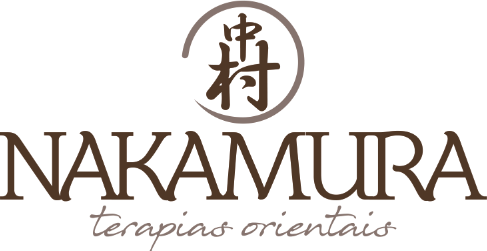Massage therapy is a physically demanding profession that requires a lot of energy and stamina. As a result, it is essential for massage therapists to maintain a healthy diet to support their body and mind. Proper nutrition can help massage therapists prevent injuries, boost their immune system, and improve their overall well-being.
Massage therapists often work long hours, which can be physically and mentally exhausting. Eating a balanced diet that includes a variety of fruits, vegetables, whole grains, lean protein, and healthy fats can provide the necessary nutrients to sustain energy levels throughout the day. Additionally, staying hydrated by drinking plenty of water can help prevent fatigue and headaches, which are common among massage therapists.
Incorporating healthy eating habits into a massage therapist’s lifestyle can also have a positive impact on their clients. By leading by example, massage therapists can educate their clients on the importance of proper nutrition and encourage them to make healthy choices. Overall, nutrition plays a crucial role in the success of a massage therapist’s career and well-being.
Fundamentals of Nutrition
Macronutrients and Their Roles
Macronutrients are the nutrients that the body needs in larger quantities. They include carbohydrates, proteins, and fats. Each macronutrient plays a crucial role in the body. Carbohydrates provide energy to the body, while proteins are essential for building and repairing tissues. Fats, on the other hand, are an important source of energy and help the body absorb vitamins.
It is important to consume a balanced diet that contains all three macronutrients in the right proportions. A diet that is too high in carbohydrates can lead to weight gain, while a diet that is too high in fats can lead to heart disease.
Micronutrients and Wellness
Micronutrients are the nutrients that the body needs in smaller quantities. They include vitamins and minerals. Each micronutrient plays a specific role in the body. For example, vitamin C is important for immune function, while calcium is essential for bone health.
It is important to consume a variety of foods to ensure that the body gets all the necessary micronutrients. A diet that is lacking in certain micronutrients can lead to deficiencies and health problems.
Hydration and Electrolyte Balance
Water is essential for the body to function properly. It helps regulate body temperature, transport nutrients, and remove waste. It is important to drink enough water to stay hydrated.
Electrolytes are minerals that help regulate fluid balance in the body. They include sodium, potassium, and magnesium. It is important to maintain a proper balance of electrolytes in the body to ensure that all bodily functions are working properly.
Massage therapists should ensure that they are consuming a balanced diet that contains all the necessary macronutrients and micronutrients. They should also make sure that they are staying hydrated and maintaining a proper balance of electrolytes in the body.
Nutrition and the Massage Therapist
Massage therapists work with their hands and bodies, which requires physical exertion and energy. Therefore, it is important for massage therapists to maintain a healthy diet to support their body and mind. Proper nutrition can help massage therapists perform at their best and prevent burnout.
Energy Requirements for Physical Work
Massage therapists need to consume adequate calories to meet the energy demands of their work. The amount of energy required varies depending on the therapist’s age, gender, weight, and level of physical activity. A diet that is high in carbohydrates, moderate in protein, and low in fat is recommended for massage therapists.
Carbohydrates are the primary source of energy for the body, and they provide the energy needed for physical work. Whole grains, fruits, and vegetables are excellent sources of carbohydrates. Protein is important for muscle repair and recovery, and it can be found in lean meats, fish, beans, and nuts. Fat is also necessary for the body, but it should be consumed in moderation. Healthy sources of fat include nuts, seeds, avocado, and olive oil.
Muscle Recovery and Dietary Needs
Massage therapists use their muscles extensively during their work, and it is important for them to consume enough protein to aid in muscle recovery. Eating protein after a massage session can help the muscles repair and recover faster. Foods high in protein include chicken, fish, eggs, and Greek yogurt.
In addition to protein, massage therapists should consume foods that are high in antioxidants and anti-inflammatory properties to help reduce muscle soreness and inflammation. Berries, leafy greens, and turmeric are excellent sources of antioxidants and anti-inflammatory compounds.
Overall, massage therapists should focus on consuming a well-balanced diet that provides the necessary nutrients to support their physical and mental health. Proper nutrition can help massage therapists perform at their best and prevent burnout.
Healthy Eating Habits
Meal Planning Strategies
Massage therapists lead busy lives, and it can be challenging to find time to prepare healthy meals. However, planning ahead can make a significant difference in maintaining a healthy diet. One strategy is to set aside a specific day each week to plan meals and create a shopping list. This way, you can ensure that you have all the ingredients you need for the week and avoid last-minute trips to the grocery store.
Another effective meal planning strategy is to prepare meals in advance. Consider cooking larger batches of food and storing them in the freezer for later use. This can save time and ensure that you always have a healthy meal option available.
Balanced Diet for Optimal Health
Eating a balanced diet is crucial for maintaining optimal health. A balanced diet includes a variety of foods from all food groups, including fruits, vegetables, whole grains, lean proteins, and healthy fats.
It’s also essential to pay attention to portion sizes. Eating too much of any food, even healthy foods, can lead to weight gain and other health problems. Consider using a food scale or measuring cups to ensure that you’re eating appropriate portion sizes.
In addition to eating a balanced diet, it’s also important to stay hydrated. Drinking plenty of water can help flush toxins from the body and improve overall health.
By incorporating these healthy eating habits into their daily routine, massage therapists can support their body and mind and provide the best possible care for their clients.
Challenges and Solutions
Common Dietary Restrictions
Massage therapists may encounter clients with various dietary restrictions, such as allergies, intolerances, or ethical choices. It is important to respect these choices and provide appropriate recommendations. Some common dietary restrictions include:
- Gluten-free: Avoiding wheat, barley, and rye due to celiac disease or gluten sensitivity.
- Dairy-free: Avoiding milk, cheese, and other dairy products due to lactose intolerance or ethical reasons.
- Vegetarian or vegan: Avoiding meat or all animal products due to ethical, environmental, or health reasons.
- Low-carb or ketogenic: Limiting carbohydrates to promote weight loss or manage blood sugar levels.
To accommodate these dietary restrictions, massage therapists can suggest alternative foods or supplements that provide similar nutrients. For example, gluten-free grains such as quinoa, rice, or corn can replace wheat-based products. Calcium-fortified plant milks or leafy greens can replace dairy for calcium and vitamin D. Legumes, tofu, or tempeh can replace meat for protein and iron. Nuts, seeds, and avocados can provide healthy fats for low-carb diets.
Managing Stress and Emotional Eating
Massage therapy can be a stressful and demanding profession, which may lead to emotional eating or unhealthy food choices. It is important for massage therapists to recognize and manage their stress levels to avoid negative impacts on their health and well-being.
Some tips for managing stress and emotional eating include:
- Practicing mindfulness and relaxation techniques, such as deep breathing, meditation, or yoga.
- Engaging in physical activity or hobbies outside of work to release tension and improve mood.
- Planning and preparing healthy meals and snacks in advance to avoid impulsive or convenience-based choices.
- Seeking support from colleagues, friends, or mental health professionals if necessary.
By prioritizing self-care and healthy eating habits, massage therapists can improve their own health and set a positive example for their clients.
Supplements and Massage Therapy
Vitamins and Minerals for Body Support
Massage therapists need to take care of their bodies to be able to perform their job effectively. Vitamins and minerals are essential for the body to function properly, and they can help support the body during massage therapy sessions.
Vitamin D is crucial for bone health, and it helps the body absorb calcium. Calcium is necessary for muscle and nerve function, and it can help prevent muscle cramps during massage therapy. Vitamin C is essential for collagen production, which can help keep the skin healthy and elastic. It can also help reduce inflammation in the body, which can be beneficial during massage therapy.
Other important minerals for massage therapists include magnesium, potassium, and iron. Magnesium helps regulate muscle and nerve function, while potassium can help prevent muscle cramps. Iron is necessary for the production of hemoglobin, which carries oxygen in the blood to the muscles.
Natural Supplements for Muscle Care
In addition to vitamins and minerals, natural supplements can also be beneficial for massage therapists. These supplements can help support muscle health and reduce inflammation in the body.
One popular supplement is turmeric, which contains a compound called curcumin. Curcumin has anti-inflammatory properties, which can help reduce pain and swelling in the body. Another natural supplement is omega-3 fatty acids, which can help reduce inflammation and support joint health.
Massage therapists should be cautious when taking supplements and should always consult with a healthcare professional before adding any new supplements to their diet. It is also important to remember that supplements should not be used as a replacement for a healthy diet and lifestyle.




